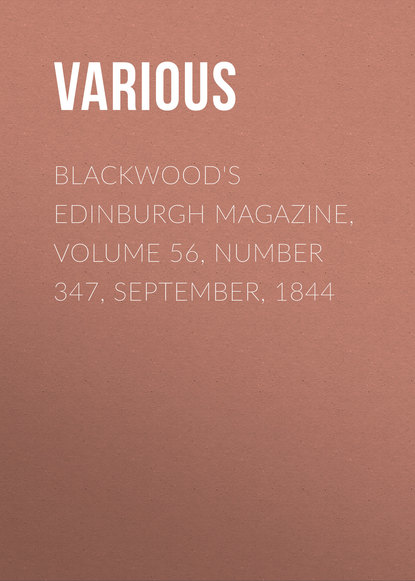По всем вопросам обращайтесь на: info@litportal.ru
(©) 2003-2024.
✖
Blackwood's Edinburgh Magazine, Volume 56, Number 347, September, 1844
Автор
Год написания книги
2019
Настройки чтения
Размер шрифта
Высота строк
Поля
ST ANDREW’S BAND
Royal Arch, Maybole
St Paul’s, Ayr
St Andrew’s, Ayr
St John’s, Girvan
St James’s, Kilmarnock
St Peter’s, Galston
St John’s, New Cumnock
Junior or Knights Templars, Maybole
SALTCOATS BAND
St John’s, Dalry
KILBARCHAN BAND
St John’s, Greenock
Shoemakers as follows:—
Champion
British Prince and attendants
Indian Prince and Train
CATRINE BAND
King Crispin and Train
Souter Johnie, in character
Highland Chieftains
GREENOCK BAND
Lodge of Odd Fellows
BAND
Robert Burns’s Lodge, Beith
AYR BAND
Banks of Ayr Lodge of Odd Fellows
Sir T. Makdougall Brisbane Lodge, Largs
Ancient Order of Foresters, Glasgow
Captain mounted, with Bow and Arrows
KILMARNOCK BAND
Kilmarnock Burns’s Lodge of Foresters
Weavers from Maybole
MAYBOLE BAND
Tailors of Maybole
MAUCHLINE BAND
Boxmakers of Mauchline, with large Scotch Thistle, carried shoulder-high by Four men, and Banner, inscribed,
“I turn’d my weeder-clips aside,
And spared the Symbol dear.”
The Party were on the Establishment of Messrs W. and A. Smith. The Thistle grew near to Mossgiel
Caledonian Union Odd Fellows, Dunlop
(Deputations of the Magistracy joined in the Procession from Dumbarton, Dunlop, Maybole, and Irvine.)
The effect of the Procession as seen from the Platform almost baffles the power of description. The wailing of the bagpipes and the crash of the bands were heard from the bosom of deep wood-thicket behind, long before the ranks became visible. At length, among the trees that skirted the opposite banks, there was a glittering of lances, and a lifting of banners, and a dark-growing line of men, in closest order, marching as if to battle. Gradually it flowed on, in continuous stream, file succeeding to file without gap or intermission, until the head of the column appeared recrossing by the Old Bridge, and winding up the road towards the Platform; and still new banners rose up behind, and fresh strains of music burst forth amidst the leafy screen. And now they reached the platform: lance and flag were lowered in honour of those who stood bareheaded above, and deafening were the cheers that ushered in the arrival of the national pageant. The spectacle was most imposing, and must have conveyed to the minds of the strangers present a vivid impression of the energy and enthusiasm so deeply implanted in the Scottish character, and always so irresistibly manifested at the touching of a national chord. The most interesting part of the Procession by far was the array of Farmers and Shepherds, the flower of the west-country yeomanry, attired in the graceful plaid. Of that same breed of men, of tall and compact mould and hardy sinew, was Robert Burns; nor is it possible to imagine any thing more animated than the appearance of those stalwart sons of the soil, as they lingered for a moment before the platform, and looked with wistful eyes at the sons of the Poet, if haply they might trace in their lineaments some resemblance to the features of him whom, from their infancy, they had learned to love. Then came the Freemasons, and King Crispin with his train, and the Archers, and much more of old Scottish device, until there seemed no end to the flowing tide of population, all keen, and joyful, and exultant. But the full burst of enthusiasm was reserved for the close. In the rear of all appeared an enormous Thistle borne shoulder high; and no sooner was the national emblem in sight, than a universal and long-continued cheer burst forth from the many thousands who were now congregated in the plain beyond. Alas, for that thistle! Though Burns, as the inscription bore,
“Had turn’d his weeder-clips aside,
And spared the symbol dear,”
such was not the fate of the offspring plant. Scarcely had it reached the platform, when Christopher North violently possessed himself of one branch, the Lord Justice-General seized upon another, and in the twinkling of an eye it was torn into fragments, and its rough leaves and rougher flowers displayed upon manly bosoms, from which it would have been difficult to wrest them again. So closed the Procession—but not the gathering. Deafening were the cheers which followed for Burns—for his Sons—for Professor Wilson—for Lord Eglinton; until the last remnant of reserve gave way, and a torrent of people swept forward to obtain, if possible, a pressure of their hands that were gladly and gratefully held forth. Descending from the Platform, we entered the meadow-ground beyond, where the multitude were now assembled. One of the bands struck up the beautiful air—“Ye banks and braes o’ bonny Doon;” and immediately the People, as if actuated by one common impulse, took up the strain, and a loftier swell of music never rose beneath the cope of heaven. We thought of the fine lines of Elliott—
“To other words, while forest echoes ring,
‘Ye banks and braes o’ bonny Doon,’ they sing;
And far below, the drover, with a start
Awaking, listens to the well-known strain,
Which brings Schehallion’s shadow to his heart,
And Scotia’s loveliest vales: then sleeps again,
And dreams on Loxley’s banks of Dunsinane.”











